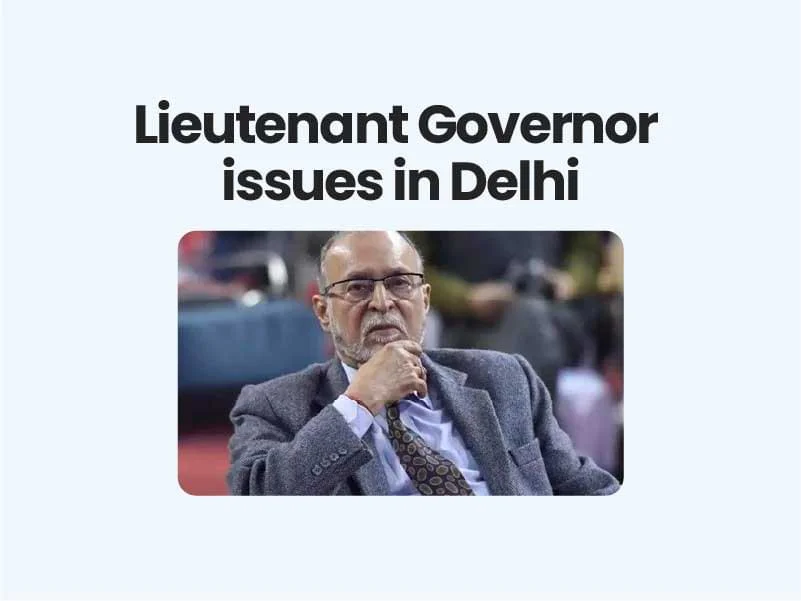
Lieutenant Governor issues in Delhi
The Ministry of Home Affairs (MHA) is likely to introduce legislation in the ongoing Parliament session to amend a 1991 Act pertaining to the powers and function of the Delhi government and the Lieutenant Governor. The Union Territory of Delhi with a Legislative Assembly came into being in 1991 under Article 239 AA of the Constitution inserted by ‘the Constitution (Sixty-ninth Amendment) Act, 1991’, It said that the UT of Delhi shall be called the National Capital Territory of Delhi.
Controversy Between LG & Delhi Government
The LG vs Delhi Government’s jurisdiction debate that the Supreme Court sought to address in NCT of Delhi vs. Union of India (2018).
This special set up worked well mainly because the same party held office at the Centre as well as in Delhi for much of the time.
Presently, SC is looking into two main issues: Whether the elected government is the final authority in respect of matters assigned to it by the constitution & Whether the LG has primacy when a difference of opinion arises between him and his council of ministers on matters of governance
Salient points in the SC verdict
- LG is only an administrator.
- Council of Ministers led by CM will convey all decisions to the LG.
- But that does not mean Council of Ministers needs his concurrence or permission to take any decision.
- Normally, LG will have to go by the “aid and advise” of the Council of Ministers headed by the CM.
- Delhi is not a state but enjoys a special status as it has an elected govt.
- Central government cannot be given full control over NCT.
- Elected government accountable to people supreme in all areas of governance except three — land, police and pu public order which are with the centre.
- Legislative Assembly will have similar powers.
- All other discordant issues such as control over officers, appointments etc will be decided by a regular bench as per this five-judge bench ruling.
Article 239 AA
- As per Article 239 AA (3) (a), the Delhi assembly can legislate on all those matters listed in the State List and Concurrent List as are applicable to union territories.
- The public order, police and land are reserved for the LG
- Article 239 AA was incorporated in the Constitution in 1992.
- It creates a “special” constitutional set up for Delhi.
- Under Article 239 AA (4), the council of ministers has the executive power to execute all matters in respect of which the assembly has the power to make laws.
- Article 239 AA (b) says that the council of ministers shall be collectively responsible to the assembly.
Article 239 AA virtually nullifies the executive power vested in the council of ministers.
Challenges
- The court did not very clearly delineate the issues in respect of which the LG can refer a decision taken by the Council of Ministers to the President in the event of a difference of opinion between the LG and the State government.
- Overlapping Areas Lt. Governor should not emerge as an adversary having a hostile attitude towards the Council of Ministers of Delhi; rather, he should act as a facilitator.
Enroll today with the best civils service academy and take your first step towards your Civils journey. Feel free to reach out to us for any inquiries, collaborations, or support. We’re here to help.


